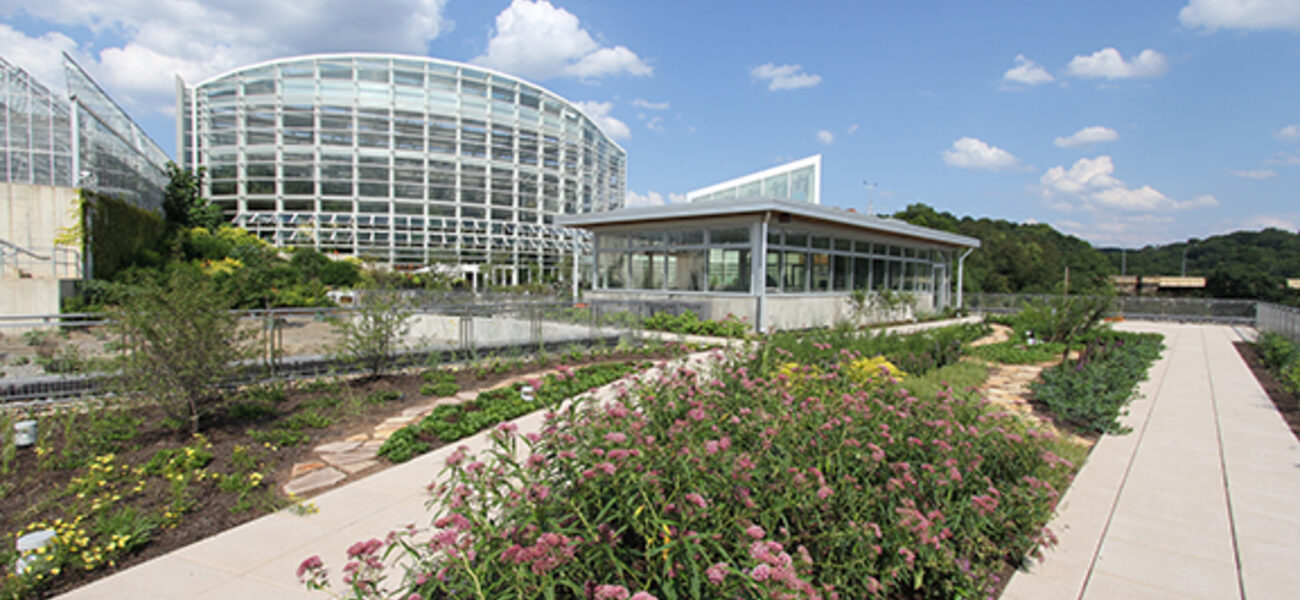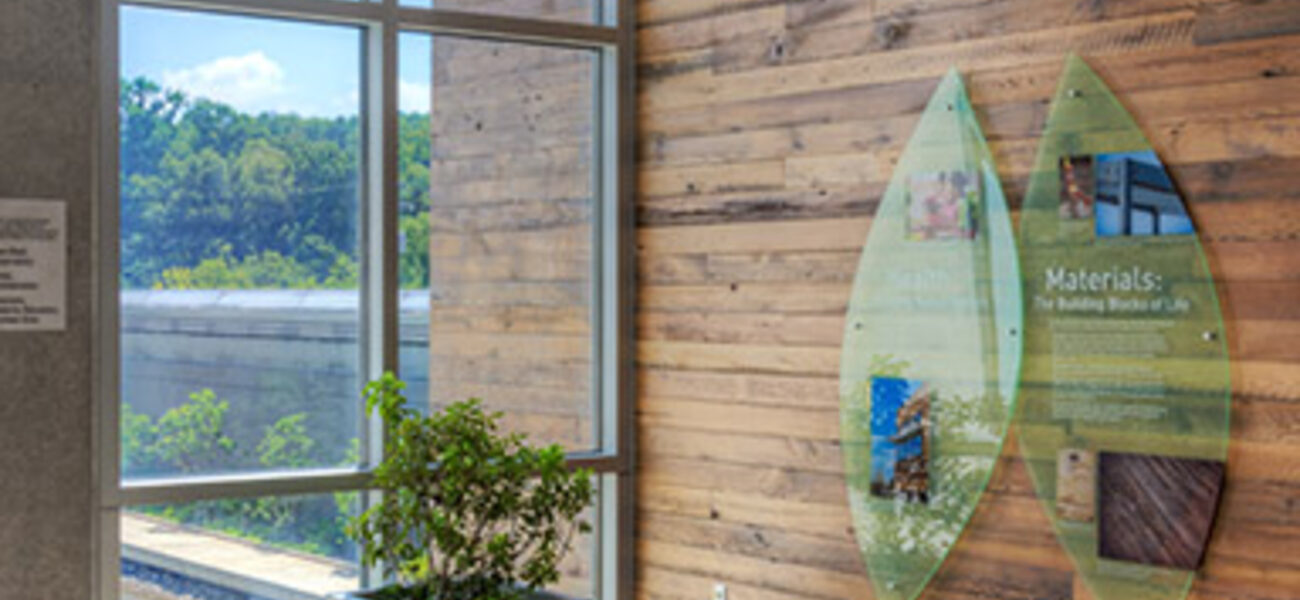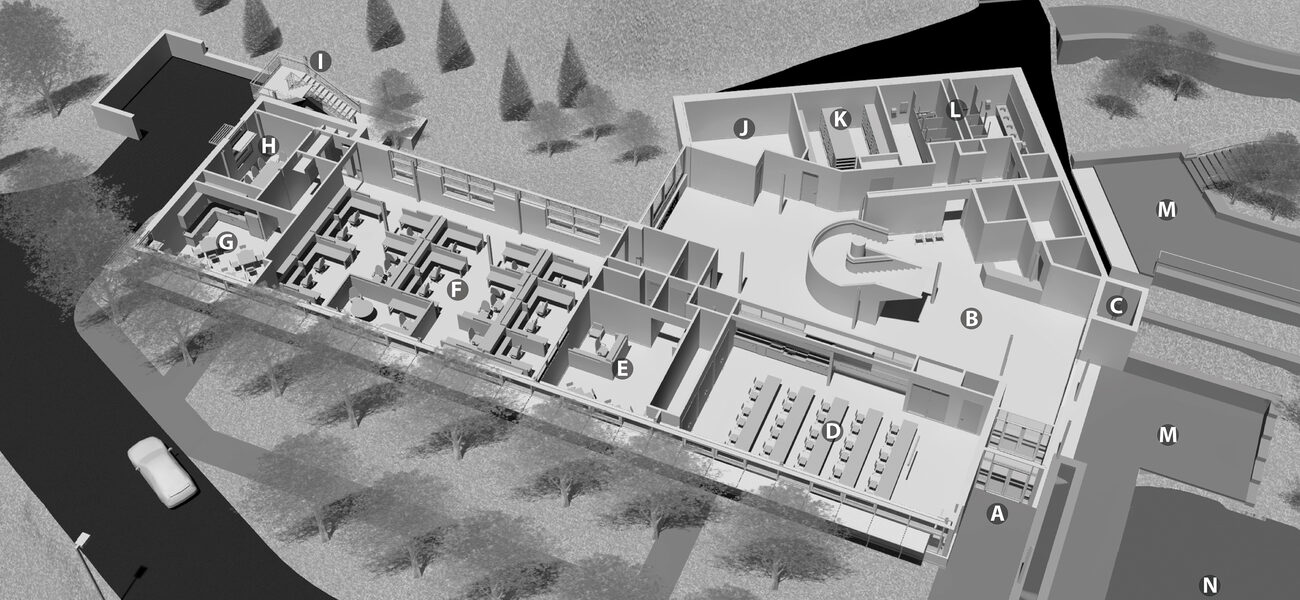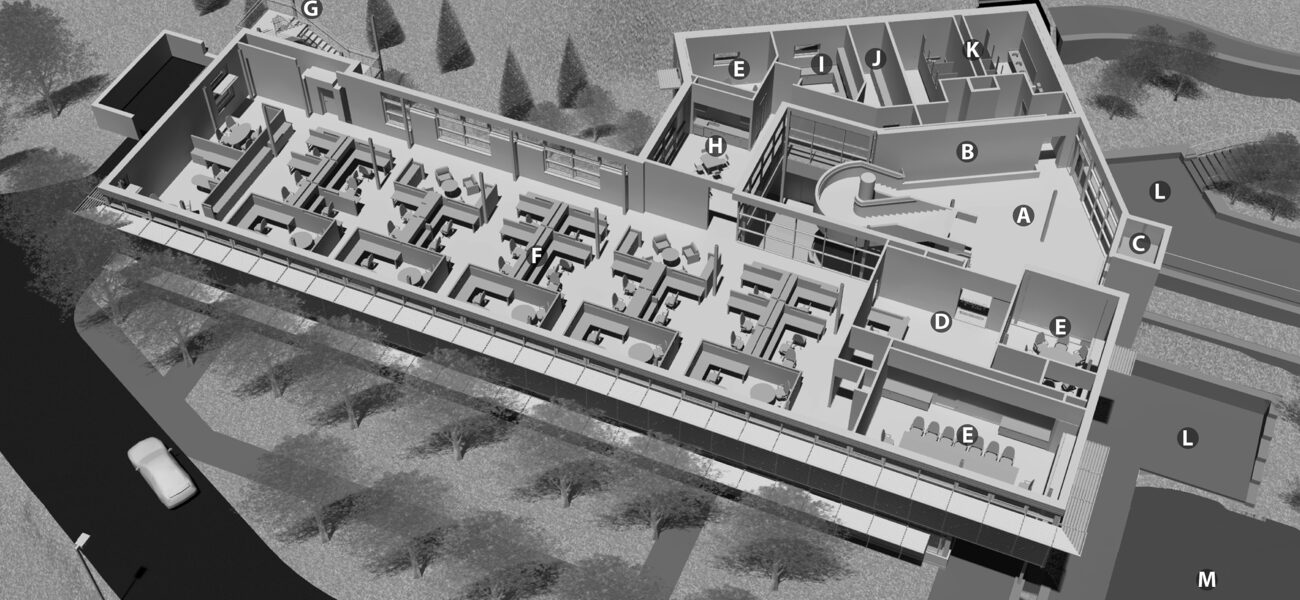The Center for Sustainable Landscapes (CSL), Phase III of a major expansion to Pittsburgh’s Phipps Conservatory and Botanical Gardens, is on course to be the first building in the world awarded certification as both LEED Platinum and a Four-Stars Sustainable Site (SITES), both of which were obtained in 2013, as well as Living Building Certification. It was certified as a Net-Zero Energy Building in 2014.
The building, which contains administrative offices and classroom space, is powered by a 125-kW photovoltaic array and a vertical axis wind turbine; heated and cooled by 14 geothermic wells dug 500 feet deep; and contains a green roof and operable windows, light shelves, and reflective ceiling material to maximize daylighting and mitigate heat gain. The maximum “comfort temperature” is 78 degrees, compared to 72 degrees in a typical building. A desiccant wheel uses what would be exhaust energy to regulate the temperature and humidity of incoming air. The systems are operated by a Direct Digital Control (DDC) Building Management System. Demand Controlled Ventilation (DCV) uses CO2 sensors to regulate the air volume according to the occupancy in the classroom, conferences rooms, and office areas. The atrium is 100 percent passively cooled.
The site is net-zero water, as well as well as net-zero energy, with rainwater irrigation and non-invasive native plantings. Underground cisterns that can hold a total of 1,700 gallons capture rainwater for use in toilet flushing and interior irrigation. Stormwater runoff is captured in a lagoon system and passed through a seven-step plant-based treatment process; overflows are stored in underground tanks with a capacity of 80,000 gallons.
A $4 million endowment helps fund the work that goes on in the building, much of which involves the building itself. Research projects, with partners such as the University of Pittsburgh, Carnegie Mellon University, and Duquesne University, include:
- The lifecycle of the CSL’s water reuse system to determine the optimal size of a system based on cost, energy, and overall performance of onsite waste treatment;
- The impact of smart grid and distributed solar generation on utility grids using the CSL’s own solar panels and campus electricity grid;
- Predictive building controls and occupant behavior;
- Monitoring water quality and plant and wildlife species succession in the CSL’s stormwater lagoon.
- Monitoring landscape performance of the CSL’s green roof and rain gardens, and gathering data on stormwater quality and quantity and the benefits that can be realized from these types of green infrastructure;
- Phipps’s own Botany in Action fellowship program supports research and related education outreach in the four plant-based science research areas of ethnobotany, diversity and conservation, landscape and brownfield restoration, and sustainable landscapes. The BIA program each year provides research funding and access to Phipps for as many as 10 plant-based PhD students who are enrolled at U.S. graduate institutions and conducting research worldwide.
The Center for Sustainable Landscapes comes on the heals of Phipps’s other sustainable innovations: the first LEED-certified visitor center in a public garden and the first-ever LEED-certified production greenhouse and tropical forest conservatory, which was the most energy-efficient structure of its kind in the world when it opened in 2006. The Phipps Conservatory and Botanical Gardens in Pittsburgh dates back to 1893.
| Organization | Project Role |
|---|---|
|
The Design Alliance Architects
|
Architect
|
|
Atlantic Engineering Services
|
Structural Engineer
|
|
CH2M Hill
|
Environmental Consultant
|
|
CJL Engineering
|
MEP Engineer
|
|
Civil and Environmental Consultants, Inc. (CEC)
|
Civil Engineer
|
|
Evolve, LLC
|
LEED Certification
|
|
H.F. Lenz Company
|
Commissioning
|
|
Pitchford Diversified
|
Enhanced Commissioning
|
|
7group, LLC
|
Energy, Daylight, and Materials
|
|
Vermeulens
|
Cost Estimating
|
|
Sundrive
|
Water Treatment
|
|
Automated Logic
|
Building Controls
|
|
Berner International
|
Air Handling Unit
|
|
Western Pennsylvania Geothermal Heating and Cooling
|
Geothermal Wells
|



